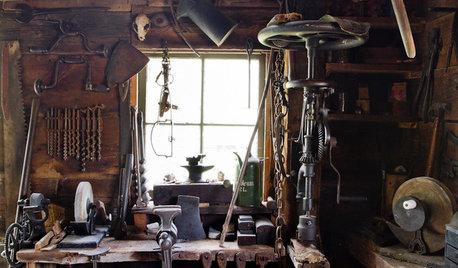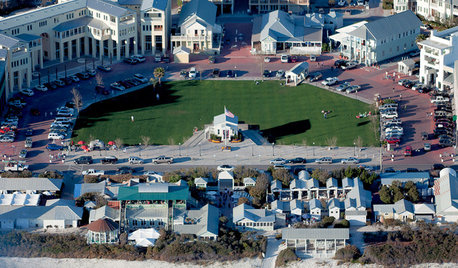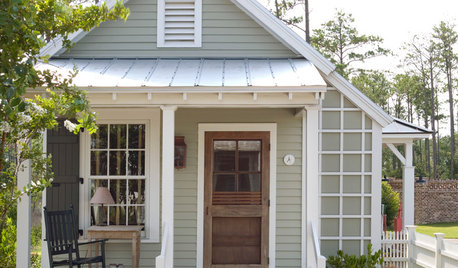Why American car makers are nearly bankrupt
qdognj
15 years ago
Related Stories

MATERIALSAre You a Maker? Show Us Your Favorite Tool or Material
Houzz Call: A tool or material can be a maker’s best friend. We’d like to see your favorite — and what it helps you achieve
Full Story
BATHROOM DESIGNWhite Toilet, Black Lid: Trending in a Bathroom Near You
Contrast is king with this look for the bath — and it works with any style you can think of
Full Story
COMMUNITYTour a Pioneering Beach Town That Fosters Community
No cars, mixed-use zones, strict building codes ... a new book takes us inside Seaside, a champion of New Urbanism
Full Story
COLLECTIONSWorld of Design: 9 Cool Collectors and What They Keep at Home
Meet the people behind some museum-worthy assemblages — from a house of hats in Los Angeles to dinosaur art near London
Full Story
DECORATING GUIDESThe '70s Are Back. Can Ya Dig It?
No need to cringe. These 21 groovy blasts from the past are updated to look fabulous today
Full Story
LIFEHow Do You Make Your Tea and Coffee in the Morning?
A morning cup is a must for many, and preparation comes in many guises. We look at coffee and tea habits across the Houzz community
Full Story
HOUZZ TOURSHouzz Tour: Creativity Captivates in a New Jersey Family Haven
Handmade treasures arranged artfully and with love fill a DIY-savvy blogger's bright and cheery home
Full Story
GREEN BUILDINGHow to Harvest Rainwater for Your Garden
Conserve a vital resource and save money by collecting stormwater for irrigation in a barrel or tank
Full Story
SHOP HOUZZHouzz Products: Set Up Your Dream Coffee Station
Wouldn’t it be nice to have your own café that never closes? With these tools and accessories from the Houzz Products section, you can
Full Story
SMALL SPACES8 Benefits of Cottage Living
Scale back to dial up your quality of life, save money and more
Full StorySponsored
More Discussions



mnk716
3katz4me
Related Discussions
needy newb with nearly nothing
Q
Best used car and where to buy it?
Q
Not-nearly-done-but-since-you-asked pics
Q
if kitchen cabinets were cars, which one is the Toyota Corolla
Q
jane__ny
mike_kaiser_gw
chisue
rileysmom17
jakkom
triciae
qdognjOriginal Author
joyfulguy
jakkom
mike_kaiser_gw
rachelh
jakkom
jakkom
bill_h
jakkom
3katz4me
bill_h
Nancy in Mich
triciae
chisue
triciae
bill_h
clg7067
stir_fryi SE Mich
mary_md7
chisue
3katz4me
jakkom
stir_fryi SE Mich
chisue
qdognjOriginal Author
stir_fryi SE Mich
chisue
duluthinbloomz4
Nancy in Mich
Nancy in Mich
stir_fryi SE Mich
qdognjOriginal Author
stir_fryi SE Mich
jakkom
3katz4me
stir_fryi SE Mich
chris8796
stir_fryi SE Mich
jakkom
Nancy in Mich
jakkom
qdognjOriginal Author